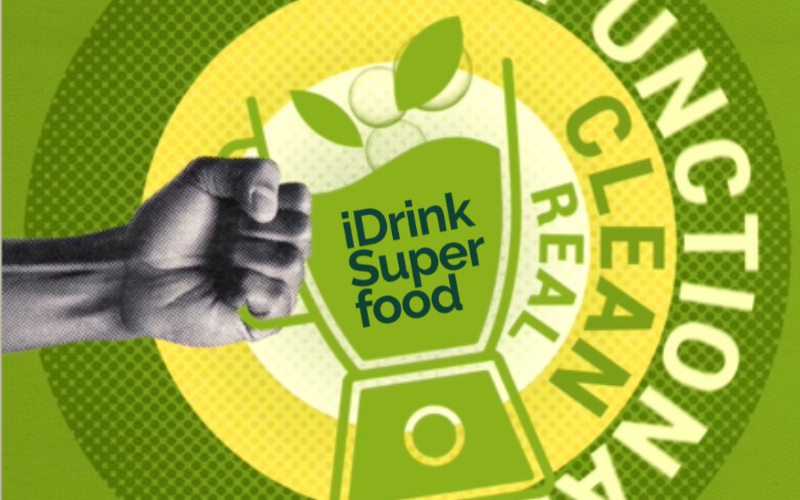How a Sugar Tax Will Reshape the UAE Market — and What It Means for Milk, Drinks, and the Wider Food Industry
As discussions around health, reformulation, and sustainability intensify, few companies understand the pulse of the market better than Super Food FZCO — one of the UAE’s key innovation drivers in the dairy and beverage sectors. Known for its work in ingredient technologies and sugar-reduction solutions, the company has been closely following how upcoming fiscal and regulatory measures will transform product strategies across the Gulf.

Governments across the region are taking stronger steps to curb sugar consumption — and the UAE is leading the way with a shift fr om a flat excise model to a tiered, sugar-content-based tax. This change, expected to take effect in 2025–2026, is not just a fiscal adjustment: it’s a structural reform that will influence pricing, reformulation, and competitiveness across beverages, dairy, and other food categories.
A New Phase for Sugar Policy
The UAE first introduced an excise tax on “harmful products” in 2017, later extending it to sweetened beverages at a flat 50% rate. Under the new framework, the tax rate will depend on the actual sugar concentration — for example, drinks containing more than 8 grams of sugar per 100 ml will face higher taxation than low-sugar or unsweetened alternatives.
According to an analysis by PwC Middle East (2024), this model aims to drive meaningful product reformulation while preserving government revenue streams and supporting public health goals. The shift also signals to the private sector that long-term competitiveness will depend on how fast companies can adapt — particularly those in the beverage, dairy, and ingredient innovation space, wh ere players like Super Food FZCO have already begun setting reformulation standards.
What Global Research Tells Us
Studies fr om the World Health Organization (WHO) and Harvard School of Public Health show that sugar-sweetened beverage (SSB) taxes reduce consumption by an average of 6–10% within the first year of implementation. In Saudi Arabia and Mexico, wh ere similar measures have been in place, producers rapidly reformulated products and reduced sugar content to stay competitive.
In the UAE, researchers fr om New York University Abu Dhabi (2023) observed a similar pattern: consumers began choosing smaller pack sizes and low-sugar alternatives, while leading manufacturers accelerated investments in R&D.
For industry players, this trend has opened up a wave of opportunity in the formulation and ingredient innovation space, an area wh ere Super Food FZCO continues to play an influential role by supporting brands in developing compliant yet great-tasting products.
How It Affects Dairy
Dairy is a special case. While plain milk and natural yogurt are nutritionally dense and generally exempt from sugar taxes, flavored and drinkable dairy products — chocolate milk, yogurt drinks, or milkshakes — often contain added sugars and therefore fall under taxable categories.
According to the European Dairy Association (EDA), one of the challenges is that “total sugar” labeling includes both naturally occurring lactose and added sugars, which can lead to unfair taxation of nutritionally valuable products. This concern is now being discussed in the Gulf Cooperation Council (GCC) as policymakers fine-tune the UAE’s new system.
For producers, the implications are clear:
-
Higher costs for sugary dairy beverages, leading to potential down-trading by consumers.
-
Incentives to reformulate, reduce added sugar, or launch “no added sugar” lines.
-
Repositioning opportunities for low-sugar, fortified, or protein-enriched dairy products as premium offerings.
Companies working closely with R&D and formulation partners like Super Food FZCO are already taking steps to adapt — focusing on ingredient optimization that balances nutrition, taste, and compliance with the new tax model.
The Economic Ripple Effect
According to a Rabobank (2024) report, the global shift toward sugar reduction will reshape product portfolios across beverages and dairy. In the GCC, the sugar tax could lead to a 3–5% price increase for high-sugar dairy drinks, prompting consumers to favor healthier options.
Meanwhile, Euromonitor International notes that the market for “better-for-you” beverages in the UAE grew by 18% between 2020 and 2024, signaling strong demand for reformulated, low-sugar products.
Opportunity: Innovation and Ingredient Leadership
The sugar tax presents not just a regulatory challenge but an innovation opportunity. Super Food FZCO, based in Dubai, has been at the forefront of helping manufacturers navigate this transition. The company’s expertise in fruit-based inclusions, natural sweetness systems, and ingredient blends enables dairy and beverage producers to meet stricter tax thresholds while maintaining flavor integrity and consumer appeal.
By combining science, sensory expertise, and commercial insight, Super Food FZCO bridges the gap between regulatory compliance and product desirability. Its ongoing collaborations with regional and global brands illustrate how reformulation, when done strategically, can drive both profitability and brand trust.
What Companies Should Do Now
-
Map products by sugar concentration to understand exposure to new tax tiers.
-
Prioritize reformulation for high-volume SKUs and child-targeted products.
-
Leverage functional positioning — protein, calcium, and probiotics can help offset the “sugar narrative.”
-
Engage policymakers to ensure fair classification of dairy and functional beverages.
-
Communicate transparently with consumers about reformulation efforts and nutritional improvements.









